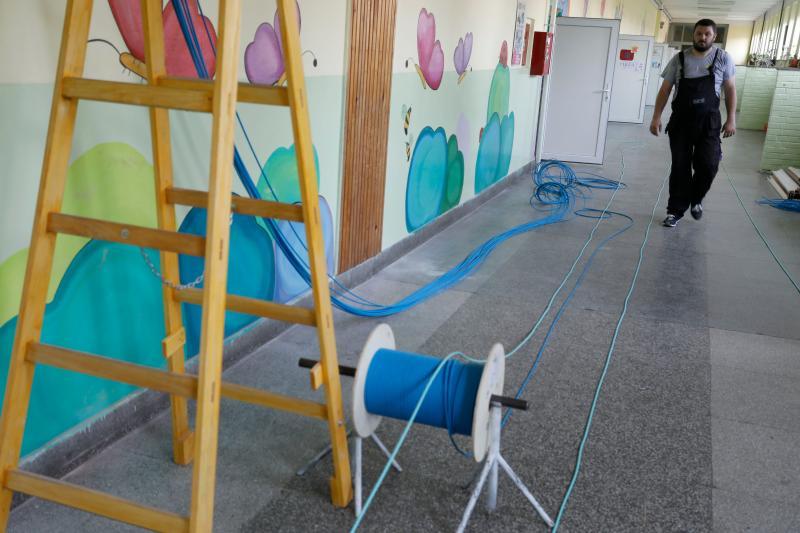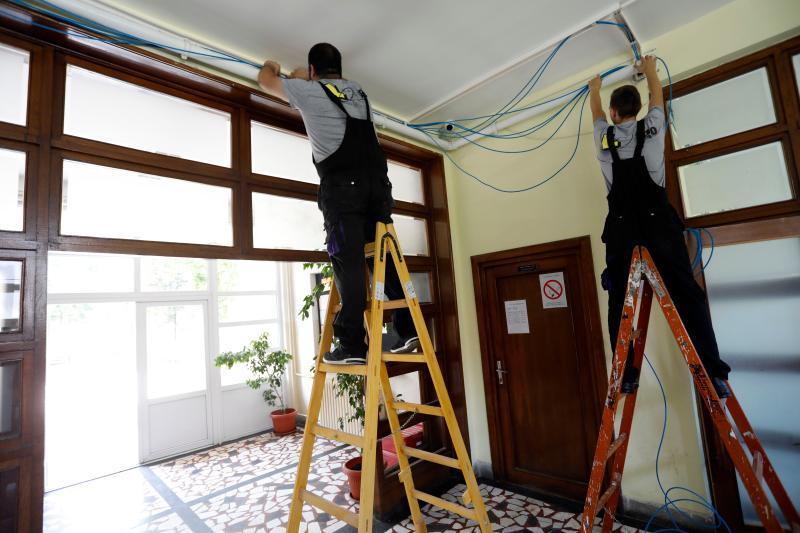For Serbia digital education transforms its schools to make the country more economically resilient—and to face any possible future pandemics like COVID-19
The coronavirus pandemic’s impact on education has been enormous, with school and university closures affecting more than 90% of the global student population in 194 countries.
Governments had to react quickly and set up remote learning. Many adopted online learning programmes. Where that wasn’t possible, they turned to television, or even radio. But the crisis exposed the digital divide between and within countries. In doing so, it has made clear the global need for digital transformation of the education sector. The European Investment Bank is ready to support the transformation.
In Serbia, with the help of the Bank, all schools will go digital by 2021.
Digitalisation and education reform are the top two priorities for the Serbian government. And the European Investment Bank backed a €65 million loan to upgrade digital infrastructure and digital teaching materials, as well teacher training (with UNICEF support). Taking into account the importance of the project, the Bank is financing almost 60% of the total €111 million project cost.
“The COVID-19 pandemic and social restrictions imposed caused severe disruption in educational systems and processes. These unprecedented circumstances showed that better digital infrastructure improves the school’s efficiency in case of emergencies,” says Isabelle Stoffel, the senior EIB loan officer who worked on the deal. “Besides increasing the resilience to future crises, this investment will create conditions for youth employability, higher competitiveness and growth of innovation in the country.”

By the end of next year, more than 1800 larger schools will be fully covered with high-speed wireless Internet access, while the remaining remote ones will be connected using mobile broadband units.
When Serbia went into lockdown in March, classes moved from classrooms to television sets. The Ministry of Education, Science and Technological Development began broadcasting educational content for elementary and high school students on Serbia’s national public television channels.
Like many other countries, Serbia had to think on its feet and adapt to the “new normal” by producing specialised content for multiple grades. However, Serbia had already been preparing their digital education content for the last few years.
“Even before the project, the government had prepared online learning content for four elementary school grades, which proved to be extremely useful during the lockdown,” says Milan Dobrijević, who heads the digital agenda department within the Ministry of Trade, Tourism and Telecommunications, and who has been working on the project since its inception.
Since the project includes the improvement of the digital infrastructure and teaching materials in schools, both the local telecommunications and education ministries are implementing it.
“By the end of next year, more than 1800 larger schools will be fully covered with high-speed wireless Internet access, while the remaining remote ones will be connected using mobile broadband units,” says Dobrijević.

From hardware to software
“Besides the digital infrastructure, the project entails nation-wide teacher trainings. In addition, Serbian Ministry of Education is at the same time developing interactive online teaching materials and textbooks,” says Nihan Koseleci Blanchy, the European Investment Bank’s education economist. In total, around 50 000 teachers all over the country will get a chance to improve their digital skills through these trainings.
“This is a crucial step in Serbia’s plan to become a digital economy,” Koseleci Blanchy says.
Serbia has recognised the role education plays in digitalisation. According to Eurostat, the level of individual digital skills in Serbia has increase from 32% in 2015 to 46% in 2019. In 2018, there were 2 000 digitally equipped classroom across Serbia. A year after the number rose to over 10 000. And starting from this school year, computer science will become compulsory for first graders, while programming will be introduced in the third grade.
Starting from this school year, computer science will become compulsory for first graders, while programming will be introduced in the third grade
“All of these programmes will help make the Serbian education system more resilient, which in turn will ensure the development of skills that nurture new ideas and technologies,” Koseleci Blanchy explains.
“And by ensuring equal access to education for all Serbian children,” Stoffel adds, “the project serves the most important goal – helping young people stay in their country and prosper.”
